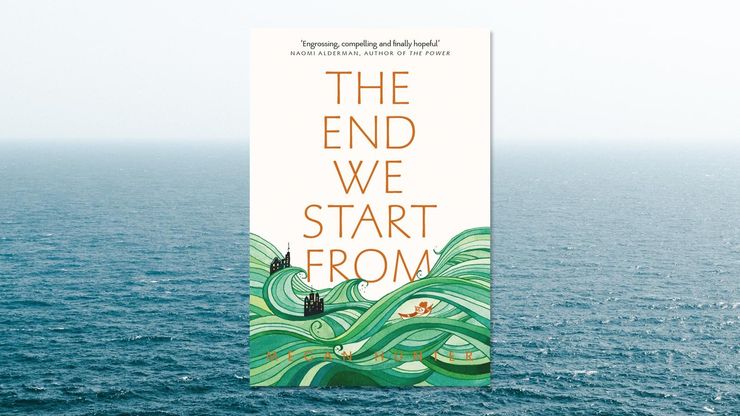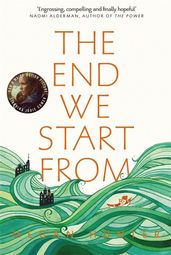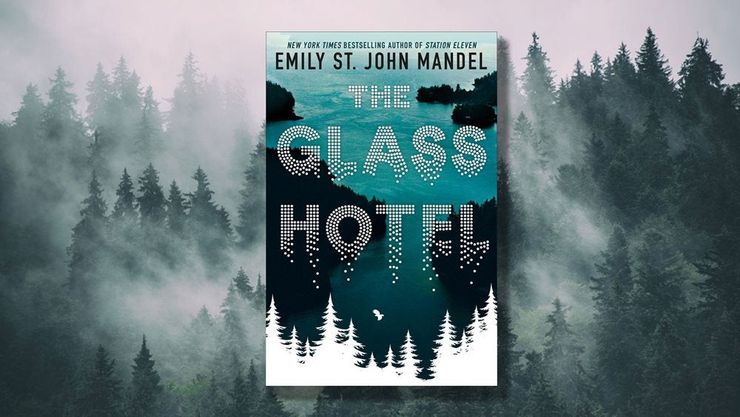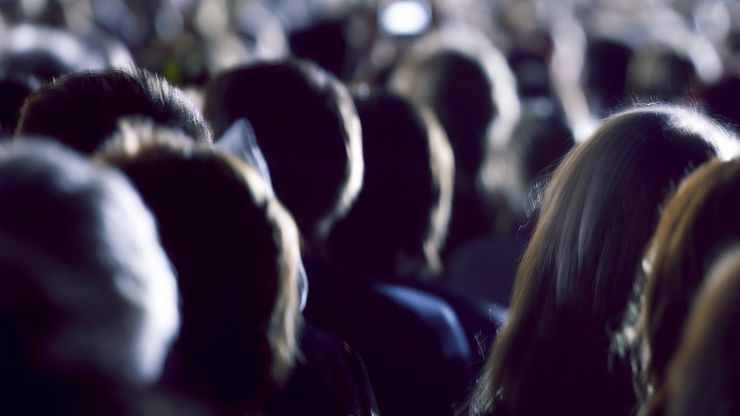The End We Start From: the beginning
Megan Hunter shares the story of how she came to write her critically acclaimed debut novel The End We Start From.

The End We Start From is a story of motherhood in a terrifying setting: a London submerged by floodwaters after a mysterious environmental crisis. Here Megan Hunter shares the story of how she came to write her critically acclaimed debut novel.
In creation mythology, one of the most common narratives is that of the earth- diver, in which an animal plunges into the primordial waters to bring up some small scrap of material. It is this piece that the earth is generated from: everything we know comes from something tiny.
Each novel has its own creation myths, fictional moons which orbit the central world of its narrative. These are the stories of a book’s beginnings, explanations that come after the moment of creation. But when we ask how or why a book was written, we must know that the whole answer is as mysterious as a planet, a place with its own atmosphere and potential for life. All we can hope to offer in reply is some scrap of truth, a grain of reality from which to begin.
One story I can tell: when I had my first child and brought him home from the hospital, there was a moment when the world seemed to dissolve and re-form again. The magnitude of what I had done seemed to rush through the streets, a flood of newness. Nothing would ever be the same again.
The way I remember it, someone brought me a newspaper in those first few days, and its front page warned of the possibility of catastrophic temperature rises by 2050, when my son would just have reached middle age. I had for years been haunted by visions of the end of the world, and now this was matched by a concern for the breath of a single human being. Is he still breathing? I would ask my husband. He was a quiet sleeper, and it was sometimes hard to tell.
Six years later, my own children were no longer babies, but around me they kept appearing: new life wrapped in blankets, miniature forms that I would hold in my arms nervously, having already forgotten about the limpness of them, the need to support the head. These were the babies of friends and family, a few days or weeks after their births, still inhabiting that hazy dream-space between the void and existence. Their parents seemed to be in this space too, wide-eyed and disbelieving, overwhelmed by a tide of change. After the birth of one of her children, I asked a friend how she was feeling. I’m drowning, she said.
It was from this place – close to babies, yet at a distance from my own, that The End We Start From came. Remembering that hazy, in-between, watery world in which it can feel as though you are drowning. Imagining what it would be like if the world of two new parents was to be literally flooded: if their home was destroyed just as it welcomed new life. It was this central image that guided the book: the flood of new parenthood made real, the threat of chaos and calamity come true. But I also wanted – or needed, perhaps – to reach into the waters for a fragment of hope, some piece of joy in the middle of terror. And in the end it was a baby’s scrappy breath – and the love that willed it on – that gave the book its beginning.
The End We Start From
by Megan Hunter
As apocalyptic floods submerge London, a woman gives birth to her first child. Soon the family are forced to flee in search of safety, moving from place to place on a journey of fear and wonder, as the baby grows and thrives against the odds. Megan Hunter's beautiful, spare prose paints an imagined future which is terrifying in its realism.



